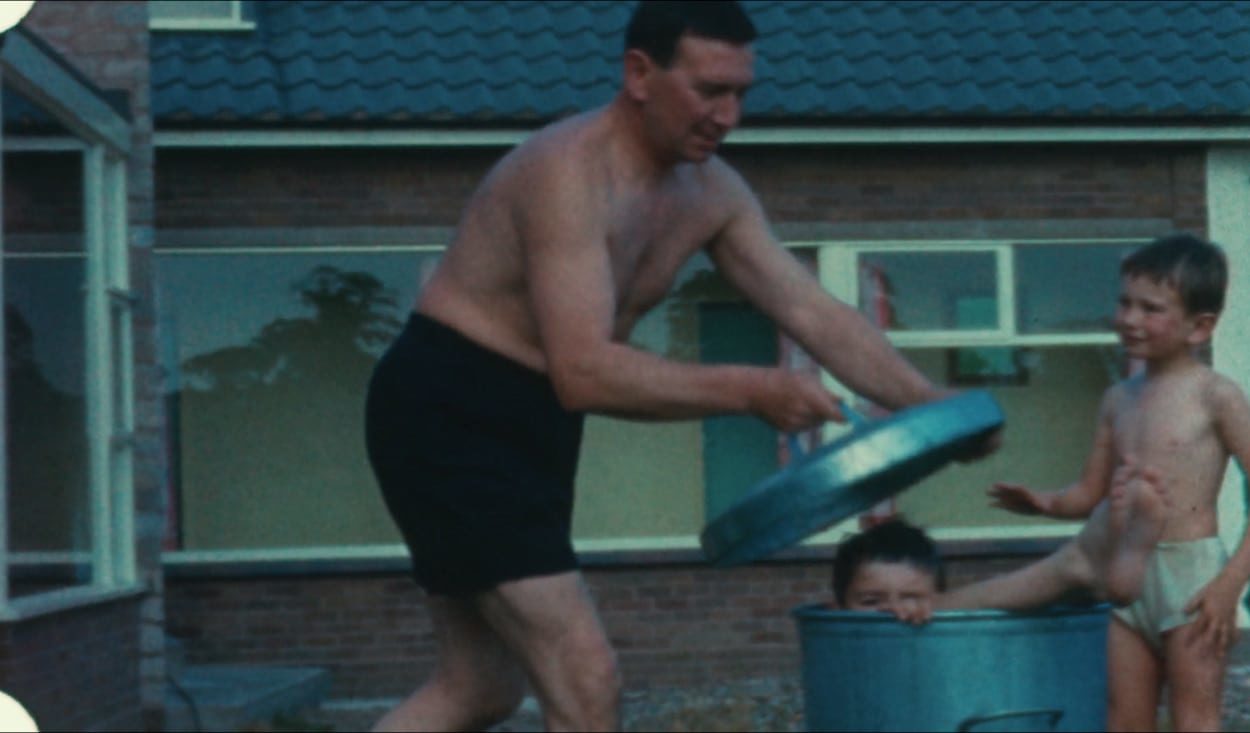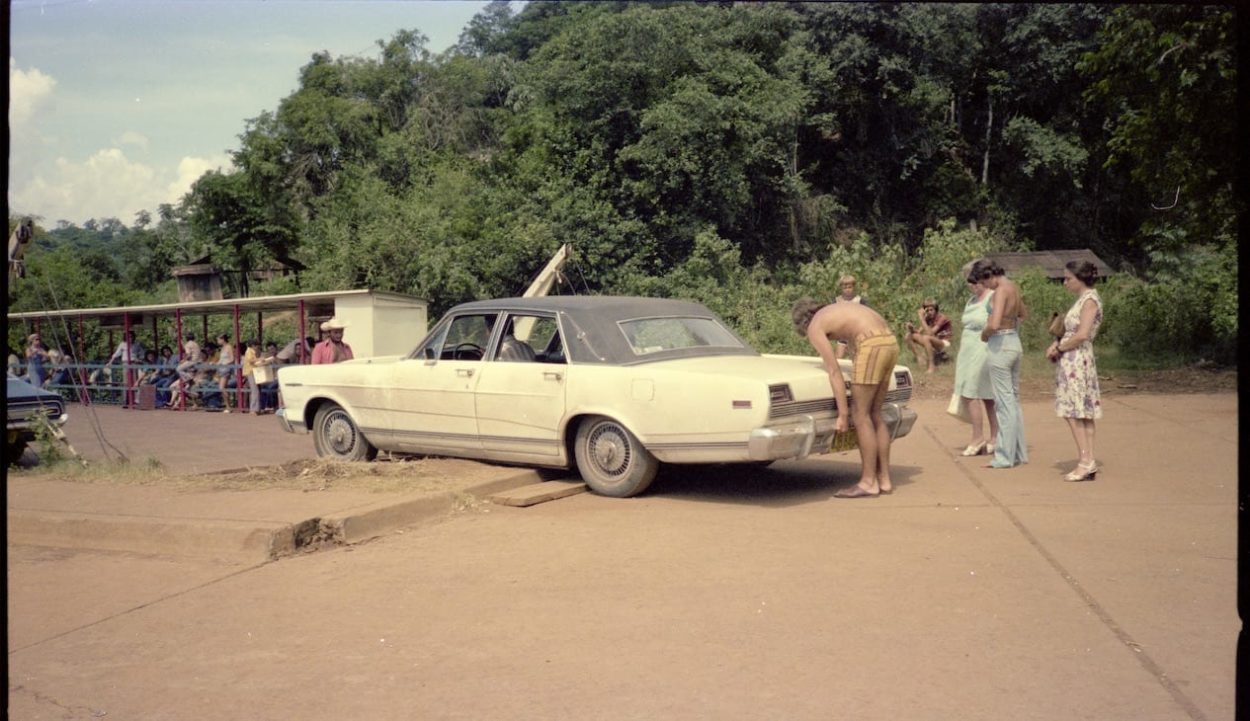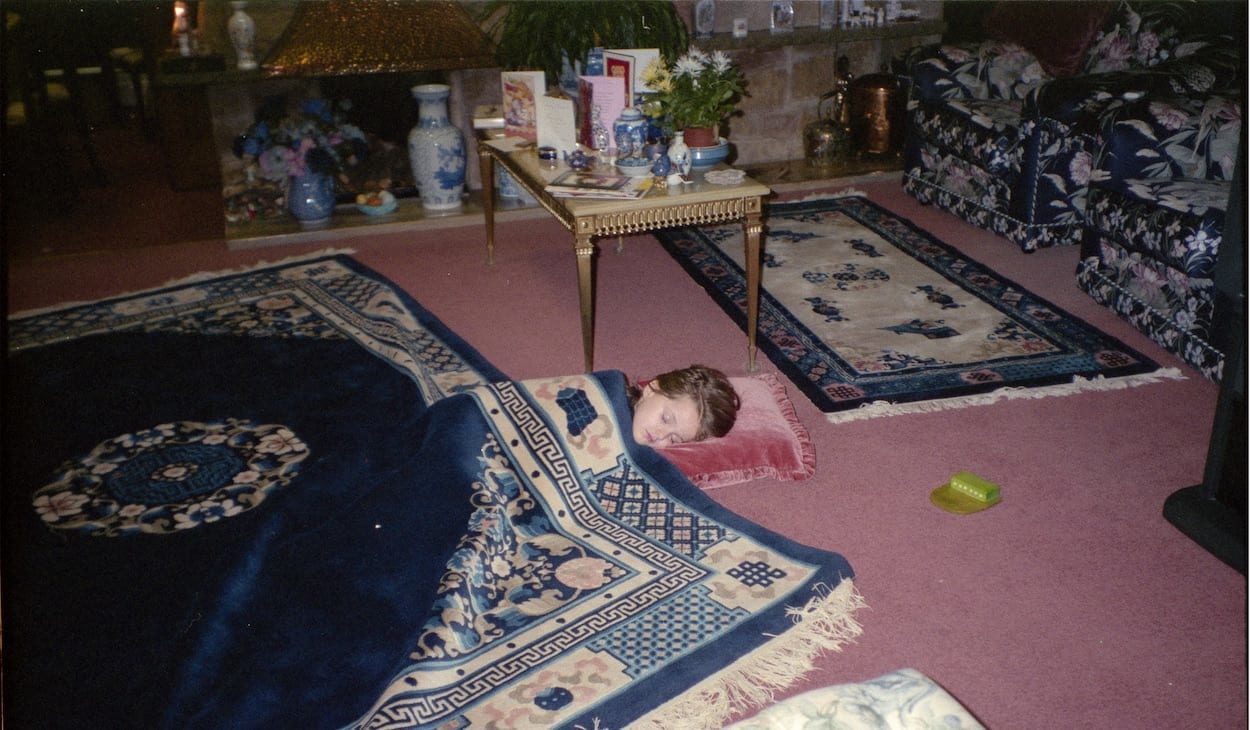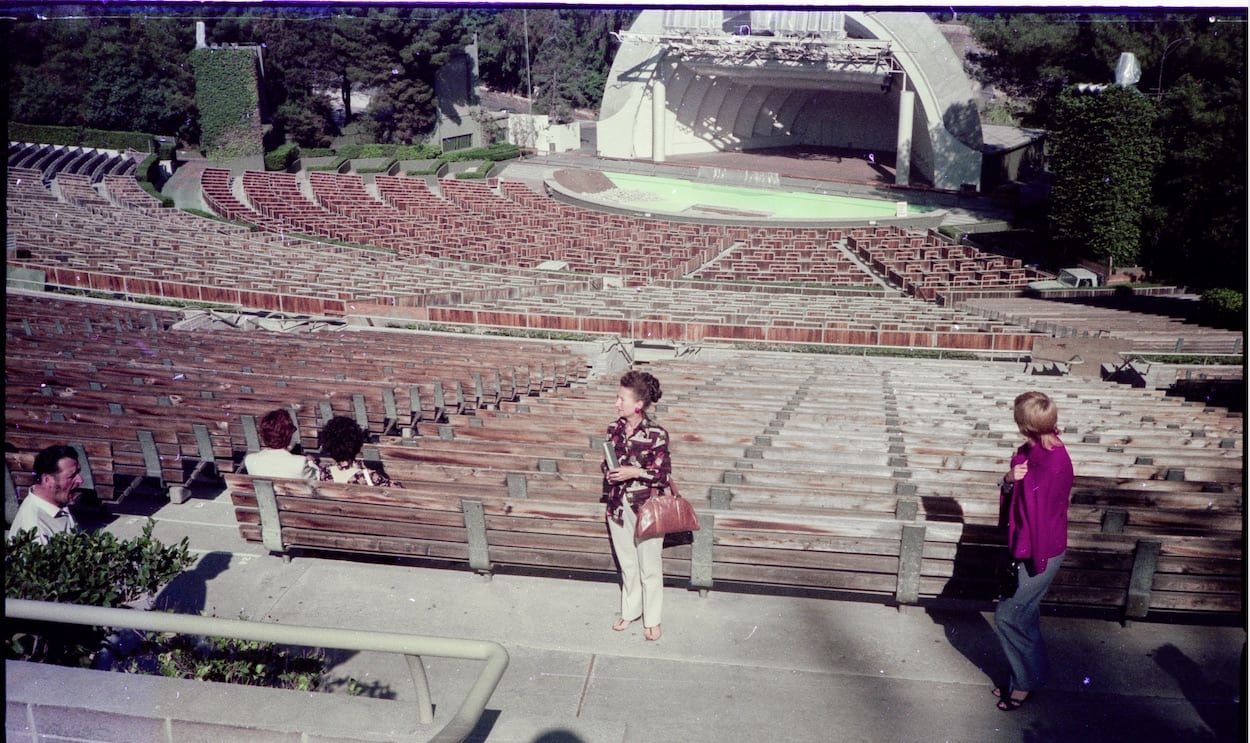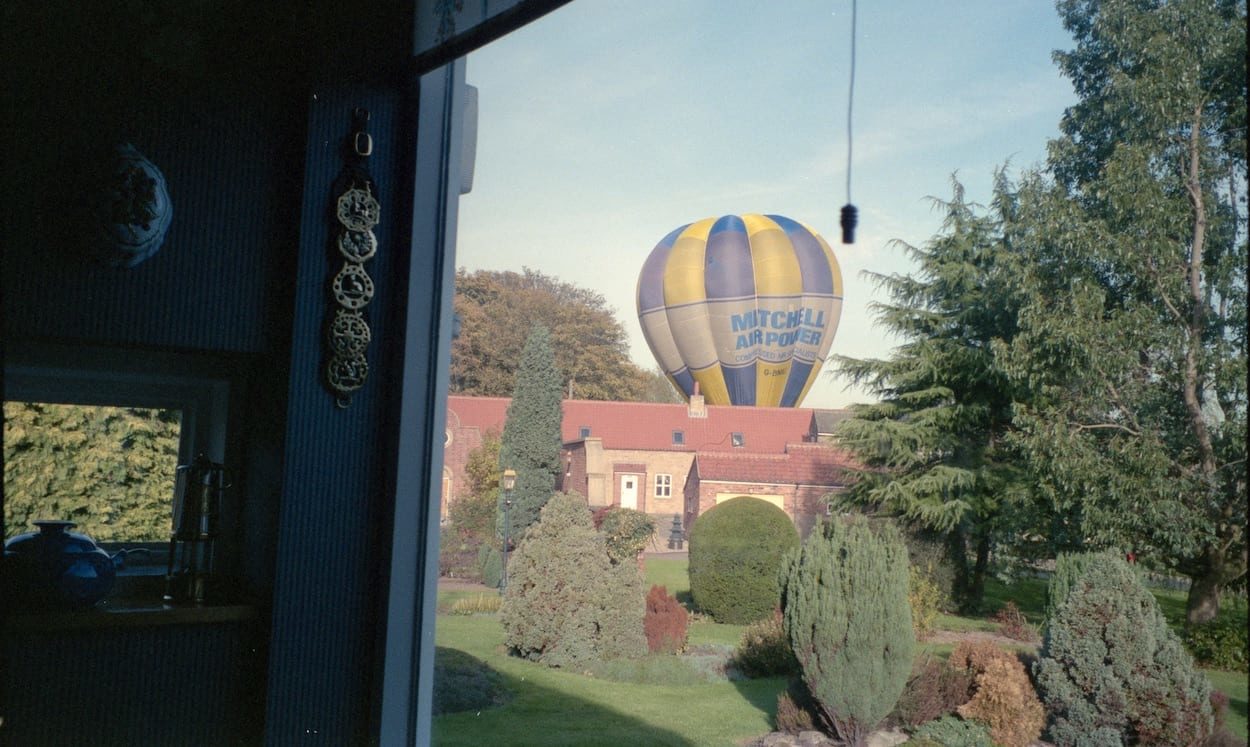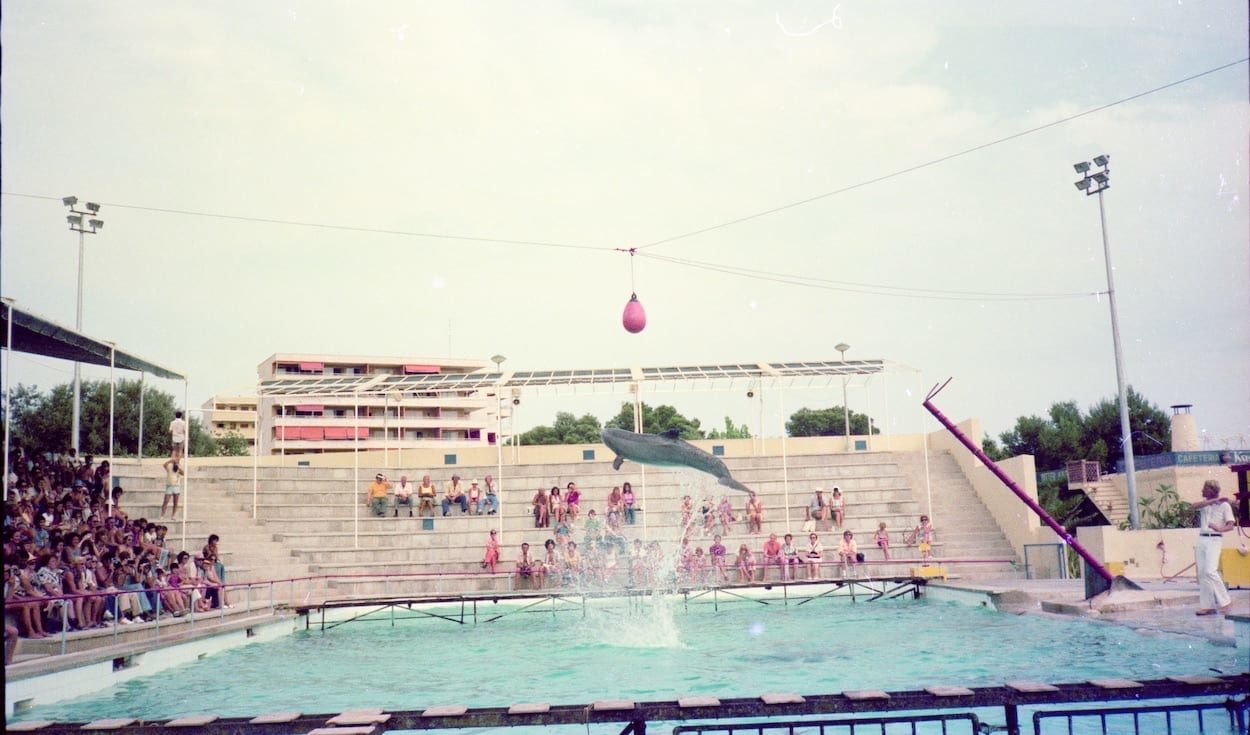How did the film come about?
It arrived pretty much accidentally. I think that all the films I’ve initiated have arrived through a chance circumstance or meeting but this one was a little unexpected. As you can hear in my voiceover, my grandmother passed away a couple of years ago. I grew up on a farm that my grandparents bought just after the second world war. I grew up around them, my parents, brother, cousins et cetera, spread across three houses. I’m pretty sure it isn’t a commune.
Anyway. After seeing her on a daily basis for many happy years she’s suddenly gone. There was the burning question of what to do with her house. It took me a while to go in there, it almost felt like a shrine. Glasses next to her chair etc — an art department’s dream. I had some film stock left over from a short film I was making and I just felt that I had to document her house before inevitable changes would happen. It was not only for sentimental reasons but it was a bit of a time-capsule and it’s an interesting modernist design. I was blown away when the rushes came back. It looked great. I wasn’t really sure if I’d ever do anything with it, but it was nice to have.
How did you discover the film/audio?
As my dad began to clear the house he found a ton of single and super 8 films that my grandmother had shot over the years. Every single one had a name and a date, e.g. ‘Tokyo, 1979’ and they ranged from 1958 to 1984 – I guess VHS came in after that.
The audio was a similar story. My grandmother was a semi-professional singer and she just seemed to religiously document stuff in either film, audio or both. So there was a bunch of magnetic tapes of her singing live, rehearsing, opening presents at Christmas etc. She even made audio recordings of the television, which I found a little odd.
Did you already know what you wanted the story to be about before you started going through the footage or did the story materialise once you started going through everything?
This feeds back to the accidental thing. I had my rushes of the house and all her material but I also had a third ingredient, because I used to record my conversations with her on my phone — she was full of stories. At the time these three elements were very separate.
I liked listening back to her and I chatting, it was nostalgic and felt good but I hadn’t made any connections at this point. I sent all the 8mm film to the lab to be scanned but again, at this point, it still wasn’t a film to me. It was only when I had all the elements that it occurred to me there was something I could make. In one of our recorded conversations she was telling me about her eldest brother’s life but inadvertently gave me not only an abridged story of her entire life but the very essence of who she was. From there the film just emerged, it was the most natural and instinctive way I’ve worked and I doubt anything will surpass it.
Did you enjoy the process of going through all the material you found?
Very much so. I feel incredibly fortunate to have such a well documented history. It was fascinating to see my family home evolve and change over a 40 year period. It’s rare that found footage is so focused on one location.
How much pressure did you feel during the editing process? It must be a fair amount particularly as you’re creating something which encapsulates your Grandmother’s spirit so personally and effectively, eternally. Did it feel like a lot of responsibility to her and to your family immortalising your Grandmother in this film?
It all felt very natural. No deadline, no client and just me steering the ship. I don’t typically edit but I felt pretty liberated to just chip away at it as and when I had the time. I never saw it as a duty or some kind of visual eulogy, it was a great learning process and a bit of a history lesson. In all honesty I still wasn’t sure what to do with it when I finished it. I sent it to a couple of friends and had some beautiful feedback but I had no idea what my family would think. Luckily it turns out they’re very fond of it.
How important do you think working on personal projects is for commercials directors?
Essential and I believe it’s where you come from. I don’t think I’ve met a director who set out to make commercials – they must have made something to convince someone to allow them to make commercials. For me I’ve got to have my next film lined up and it might just be the early building blocks but it’s why I got into filmmaking.
You’re part of a collective called Pilgrim. How would you sum up your style – both for passion projects and commercial work?
Currently there’s a disparity in our personal and commercial work. Between us our tastes naturally differ a little but our personal projects and ambitions are planted in the language of independent cinema and story. Commercially we’re finding success in art department heavy, precise, glossy ads which agencies and clients love but there is a disconnect between the two.
Is there anything else you’d like to share?
I’m very aware that for many this film is nostalgic and overly sentimental. There are a ton of films online eulogising family members and friends and I don’t know if this one stands out. However, what I do like about this film is that for once I had and have no insecurities about what people will think, and no-one to answer to; it’s a film for me. If other people like it then that’s great too. It was the most honest and natural process to make it and I don’t think I’ll come across the same circumstances again. As a filmmaker if you can find that zone to work within then it’s very rewarding.
Finally, there are of course hundreds of photographs that accompany every trip and occasion that was filmed. I’ve had a brief look through them and I think at times she was an accidental image maker and there’s some great stuff in there – see stills above.
Interview by Ali Albion
LINK:
